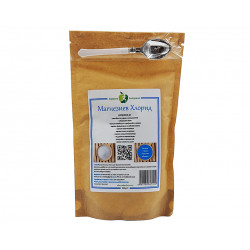The first scientist who researched and disclosed the antibiotic properties of magnesium, a French surgeon and professor of medicine Pierre Delbet.
In 1915, looking for a solution for washing the wounds of soldiers, he discovered that the commonly used antiseptics actually destroy tissue and exacerbate infections rather than prevent them. In all his tests magnesium chloride gave the best results. It turned out that it is not only safe for the fabric, but also significantly stimulates the activity of leukocytes and phagocytosis, and because of this - the destruction of disease-causing microbes.
Later Delbet conducted experiments with internal application of magnesium chloride and concluded that this compound stimulates a strong immune system. In his experiments phagocytosis increased to 333%. This means that after the adoption of magnesium chloride, the same amount of white blood cells destroy more than three times more germs than without it. Gradually professor Delbet found that magnesium chloride is effective in treating many ailments, including:
- Diseases of the digestive tract, such as inflammation of the colon and gall bladder problems, Parkinson's disease;
- Acne, eczema, psoriasis, warts and itchy skin;
- Impotence, prostatic hypertrophy;
- Problems with the central nervous system and blood circulation;
- Asthma;
- Hay fever;
- Urticaria;
- Anaphylactic reactions.
Additionally, the application of magnesium chloride, nails and hair becomes stronger and stronger, and the vital energy of the patient increase.
Professor Delbet also found that magnesium chloride very well prevent cancer and treat precancerous conditions - such as leukoplakia, hyperkeratosis and chronic mastitis. Epidemiological studies confirm that in areas rich in magnesium soil observed fewer cases of cancer than where its content in the soil is low.
Another French doctor, A. Neveu, using magnesium chloride, cured for two days several patients suffering from diphtheria. Also posted results of treating 15 cases of the disease Heine-Medina (polio) who were cured for several days, with the remark that the treatment was started immediately or soon after paralysis. Neveu found that the magnesium chloride is effective in the treatment of:
- Asthma, bronchitis, pulmonary inflammation, emphysema;
- Sore throat, tonsillitis, hoarseness;
- The common cold, flu;
- Whooping cough, measles, rubella, mumps, scarlet fever;
- Poisoning, gastroenteritis;
- Boils, abscesses, inflamed wounds spiking infected wounds;
- Inflammation of the bone marrow.
In the recent past Dr. Raul Vergini and others confirmed these earlier results and added to the list of diseases and conditions susceptible to the effects of the magnesium chloride the following: acute asthma attack, shock, tetanus, herpes, herpes zoster, acute and chronic conjunctivitis, optic neuritis, rheumatic diseases, allergic diseases, and chronic fatigue syndrome. It is noticed also its positive effects in the treatment of cancer. In all cases, magnesium chloride gave better results than other magnesium compounds.
Magnesium is very important for normal functioning of the nervous and cardiovascular system and also plays a big role in over 300 enzymatic reactions in the production of energy.
* Find a product for a specific disease such as write his name (eg .: Diabetes)
Cart 0 Product Products (empty)
No products
Free shipping! Shipping
0,00 € Total
Product successfully added to your shopping cart
Quantity:
Total
There are 0 items in your cart. There is 1 item in your cart.
Total products
Total shipping Free shipping!
Total
Magnesium chloride fight germs in the body
Health products

Related products
- Magnesium chloride, dieatry supplement, Zdravna Akademia,...Отзиви към продукта: 2
Magnesium chloride reduces fatigue and tiredness, supports electrolyte balance, normalizes metabolism and energy production.
10,23 € / 20,01 лв



